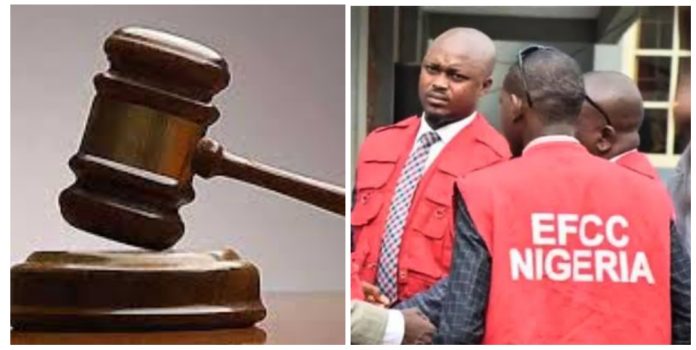Justice Muhammad Lawal, the presiding judge of the Court of Appeal in Sokoto, has called on Nigerian anti-graft agencies to focus their efforts on prosecuting highly corrupt individuals instead of prioritizing young fraudsters, commonly referred to as “Yahoo boys.” Justice Lawal made this statement at a one-day conference in Kano organized by the Independent Corrupt Practices and Other Related Crimes Commission (ICPC) to strengthen its corruption prevention capacity.
In his remarks, Justice Lawal criticized certain judicial practices that undermine anti-corruption efforts, emphasizing the role of judges in enabling or impeding the fight against graft. He expressed concern over cases where judges issue ex-parte orders to halt investigations, describing such actions as detrimental to the anti-corruption fight.
“Part of the problem in the fight against graft in the country is judges. I have come across cases where judges give ex-parte orders to stop investigations. We have to be very careful in granting orders against anti-corruption agencies, as it amounts to ultra vires. Once you stop anti-corruption agencies from investigating, you are killing the anti-corruption fight,” Justice Lawal stated.
Justice Lawal urged agencies like the Economic and Financial Crimes Commission (EFCC) and ICPC to adopt a more inclusive approach to tackling corruption by focusing on high-profile cases involving “bigger fish.” He argued that a deeper and more encompassing prosecution strategy is essential to firmly establish anti-corruption practices in the country.
At the same event, ICPC Chairman Dr. Musa Adamu Aliyu, SAN, reiterated the importance of collaboration with state Attorneys-General to combat corruption effectively. He emphasized the need for systemic reforms and the adoption of advanced technology to address delays in the justice system.
“Today’s gathering is crucial as we bring together key stakeholders at the subnational level to discuss the need for a united front in the fight against corruption. Confronting corruption is critical to the prosperity of our nation—no country can thrive where corruption thrives,” Dr. Aliyu stated.
Dr. Aliyu also called for public resistance to bribery and assured that the ICPC remains committed to using both enforcement powers and preventive measures to combat corruption within the confines of the law. The conference aimed to evaluate the strengths and weaknesses of anti-corruption efforts and improve the administration of criminal justice in Nigeria.



